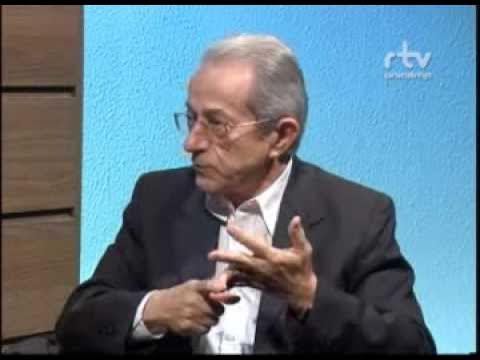Otras miradas sobre las TIC en la educación #IBERTIC
Summary
TLDRThis script explores the complex relationship between technology and humanity, particularly in the context of education. It critiques the common dichotomy of viewing technology as either enhancing or degrading human nature. The speaker advocates for a non-essentialist approach, arguing that technology is not an external force but an integral part of our evolving human condition. By referencing philosophers and scholars like Donna Haraway and Roberto Esposito, the discussion challenges traditional notions of 'human nature' and encourages a reevaluation of our connection with technology, suggesting that it shapes and is shaped by us.
Takeaways
- 🤖 The speaker discusses the problematic placement of new technologies, particularly in the field of education, where institutions struggle to adapt to rapid technological changes.
- 🏫 The educational system is highlighted as facing a significant challenge due to its structure being based on an older technological paradigm, which is at odds with the current fast-paced technological advancements.
- 👨🏫 Teachers, often trained in the 20th century, may find it difficult to adapt to modern students' multitasking behaviors, reflecting a generational and technological gap.
- 🧠 The concept of 'concentration' is questioned, suggesting it is not an absolute state but rather a relational one, influenced by the material world and its changes over time.
- 📱 The speaker argues against viewing technology as an accessory to education, emphasizing that it is an integral part of the educational process and societal transformation.
- 🌐 There's a critique of the 'optimistic' and 'pessimistic' views on technology's impact on humanity, suggesting that technology is not separate from human nature but an evolving part of it.
- 🤝 The idea of friendship, as an example, is explored to illustrate how technology can transform human relationships, challenging traditional notions of what constitutes 'true' friendship.
- 🔄 The speaker emphasizes the dynamic nature of human concepts and relationships, suggesting that technology is not an external force but a catalyst for the continuous evolution of humanity.
- 👩🏫 The necessity for educators to update their skills and perspectives is underscored, to align with the transformative potential of technology in educational settings.
- 🌟 Donna Haraway's concept of the 'cyborg' is mentioned, which challenges traditional views of humanity and technology, suggesting a symbiotic relationship where technology is not separate but constitutive of our identities.
Q & A
What is the main theme discussed in the script?
-The main theme discussed in the script is the impact of new technologies, particularly in the field of education, and how they interact with human nature and institutions.
What is the conflict highlighted between new technologies and educational institutions?
-The conflict is that new technologies are transforming at a faster pace than educational institutions can adapt, leading to a misalignment between the technological advancements and the institutions' ability to integrate them effectively.
Why does the speaker mention the concept of 'desajuste' or 'mismatch'?
-The speaker mentions 'desajuste' to describe the mismatch between the rapid material transformations brought by technology and the slower institutional adaptation to these changes, especially in the context of education.
How does the speaker view the relationship between technology and human nature?
-The speaker views technology not as something external to human nature but as a part of it. They argue against essentialist views that see technology as either improving or destroying human nature, suggesting instead that technology transforms human nature.
What is the 'cyborg' concept mentioned in the script, and how does it relate to human nature?
-The 'cyborg' concept refers to a being that is both organic and biomechatronic, symbolizing the integration of technology with human biology. It relates to human nature by challenging the idea of a fixed human essence and suggesting that technology is a constitutive part of who we are.
What does the speaker suggest about the role of philosophy in relation to technology?
-The speaker suggests that philosophy often arrives late to the conversation about technology, and while it's not a problem for philosophy to be late, it becomes concerning when educational institutions cannot engage with the new stages of technological development.
Why does the speaker argue against seeing technology as an accessory in education?
-The speaker argues against this view because it underestimates the transformative nature of technology. They believe that technology is not just an add-on but an integral part of the educational process, shaping and being shaped by it.
What are the two classical positions on the relationship between humans and technology discussed in the script?
-The two classical positions are the optimistic view, which sees technology as enhancing human functions, and the pessimistic view, which sees technology as degrading or destroying human nature.
How does the speaker critique the idea of 'natural human nature'?
-The speaker critiques the idea by suggesting that human nature is not static but constantly evolving, and technology is part of this evolution. They argue against the notion of a pure, unchanging human essence that technology threatens.
What does the speaker propose as an alternative to the binary views on technology's impact on humanity?
-The speaker proposes an understanding of technology as an integral part of human nature that transforms it, rather than something external that either improves or destroys it. They advocate for a non-essentialist perspective that sees technology as a co-constitutive element of humanity.
Outlines

このセクションは有料ユーザー限定です。 アクセスするには、アップグレードをお願いします。
今すぐアップグレードMindmap

このセクションは有料ユーザー限定です。 アクセスするには、アップグレードをお願いします。
今すぐアップグレードKeywords

このセクションは有料ユーザー限定です。 アクセスするには、アップグレードをお願いします。
今すぐアップグレードHighlights

このセクションは有料ユーザー限定です。 アクセスするには、アップグレードをお願いします。
今すぐアップグレードTranscripts

このセクションは有料ユーザー限定です。 アクセスするには、アップグレードをお願いします。
今すぐアップグレード関連動画をさらに表示

Technology as a Way of Revealing - Martin Heidegger (GED104_B4_Gr2)

Ilmu Pengetahuan Teknologi & Seni dalam Islam

Diálogo Sem Fronteira - Sociedade, História e Educação no Brasil - Dermeval Saviani

From Friends to Foes: The Story of Israel and Iran | Unpacked

Ilmu Pengetahuan Teknologi & Seni dalam Islam

Why Do Clocks Run Clockwise? | Neil deGrasse Tyson Explains...
5.0 / 5 (0 votes)
